Spy fiction, a genre of literature involving espionage as an important context or plot device, emerged in the early twentieth century, inspired by rivalries and intrigues between the major powers, and the establishment of modern intelligence agencies. It was given new impetus by the development of fascism and communism in the lead-up to World War II, continued to develop during the Cold War, and received a fresh impetus from the emergence of rogue states, international criminal organizations, global terrorist networks, maritime piracy and technological sabotage and espionage as potent threats to Western societies. As a genre, spy fiction is thematically related to the novel of adventure, the thriller and the politico-military thriller.
Leonard Cyril Deighton is a British author. His publications have included cookery books, history and military history, but he is best known for his spy novels.
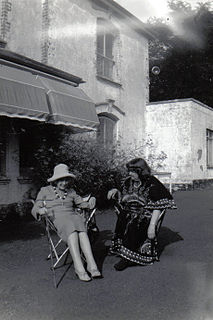
Jean Rhys, (; born Ella Gwendolyn Rees Williams, was a British novelist who was born and grew up in the Caribbean island of Dominica. From the age of 16, she was mainly resident in England, where she was sent for her education. She is best known for her novel Wide Sargasso Sea, written as a prequel to Charlotte Brontë's Jane Eyre. In 1978, she was appointed a Commander of the Order of the British Empire for her writing.

The Spy Who Came in from the Cold is a 1963 Cold War spy novel by the British author John le Carré. It depicts Alec Leamas, a British agent, being sent to East Germany as a faux defector to sow disinformation about a powerful East German intelligence officer. It serves as a sequel to le Carré's previous novels Call for the Dead and A Murder of Quality, which also featured the fictitious British intelligence organization, "The Circus", and its agents George Smiley and Peter Guillam.
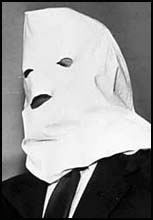
Igor Sergeyevich Gouzenko was a cipher clerk for the Soviet embassy to Canada in Ottawa, Ontario. He defected on 5 September 1945, three days after the end of World War II, with 109 documents on the USSR's espionage activities in the West. This forced Canada's Prime Minister Mackenzie King to call a Royal Commission to investigate espionage in Canada.
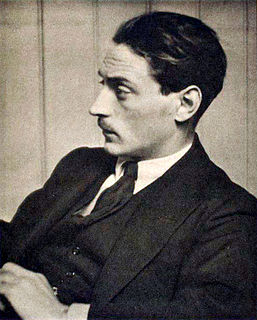
Sir Edward Montague Compton Mackenzie, was an English-born Scottish writer of fiction, biography, histories and a memoir, as well as a cultural commentator, raconteur and lifelong Scottish nationalist. He was one of the co-founders in 1928 of the National Party of Scotland along with Hugh MacDiarmid, RB Cunninghame Graham and John MacCormick. He was knighted in 1952.

The Thirty Nine Steps [sic] is a British 1978 thriller film directed by Don Sharp, with screenplay by British playwright Michael Robson, based on the novel The Thirty-Nine Steps by John Buchan. It was the third film version of the 1915 novel.

The Spy Who Came In from the Cold is a 1965 British Cold War spy film based on the 1963 novel of the same name by John le Carré. The film stars Richard Burton, Claire Bloom, and Oskar Werner. It was directed by Martin Ritt, and the screenplay was written by Paul Dehn and Guy Trosper.

The Honorary Consul, also known as Beyond the Limit in North America, is a 1983 British drama film directed by John Mackenzie and starring Michael Caine, Richard Gere, Bob Hoskins, and Elpidia Carrillo. It is based on the 1973 novel The Honorary Consul by Graham Greene.

The Man Outside is a 1967 British spy thriller film directed by Samuel Gallu and starring Van Heflin, Heidelinde Weis and Pinkas Braun. It was first exhibited in Austria and West Germany in 1967, and then in Britain the following year. The story is based on the 1959 novel Double Agent by Gene Stackelberg. The film's sets were designed by the art director Peter Mullins.
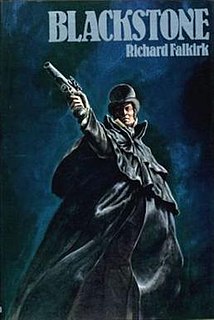
Blackstone is a 1972 historical thriller novel by the British writer Derek Lambert, published under the pen name Richard Falkirk. It is the first in a series of novels featuring Edmund Blackstone, a member of the Bow Street Runners in the 1820s. Blackstone is assigned the job of protecting the young Princess Victoria, a task he initially considers a waste of time but which soon proves to be dangerous.
Len Deighton is an English author known for his novels, works of military history, screenplays and cookery writing. He had a varied career, including as a pastry cook, waiter, co-editor of a magazine, teacher and air steward before writing his first novel in 1962: The IPCRESS File. He continued to produce what his biographer John Reilly considers "stylish, witty, well-crafted novels" in spy fiction, including three trilogies and a prequel featuring Bernard Samson.

The Red House is a 1972 thriller novel by the British writer Derek Lambert. A leading Soviet Astronaut defects to the West.
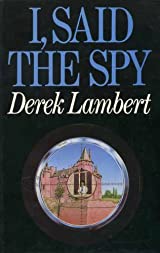
I, Said the Spy is a 1980 thriller novel by the British writer Derek Lambert.

The Red Tapeworm is a 1941 comedy novel by the British writer Compton Mackenzie. It is a satire on the wartime economic measures imposed by the government during the Second World War.

The Three Couriers is a 1929 comedy thriller novel by the British writer Compton Mackenzie. It was inspired by his own experiences working for British intelligence during the First World War. It set in Southeastern Europe, and features the fictional British spy Roger Waterson who had previously appeared in Extremes Meet. Thriller writer Eric Ambler was an admirer of the novel.

Extremes Meet is a 1928 comedy thriller novel by the British writer Compton Mackenzie. It set in Southeastern Europe, and features the fictional British spy Roger Waterson who subsequently appeared in a sequel The Three Couriers published the following year.

Rockets Galore is a 1957 comedy novel by the British writer Compton Mackenzie. It is the sequel to his 1947 novel Whisky Galore, and sees the inhabitants of a remote Scottish island resist a government plan to build a missile base on their home.

The Limbo Line is a 1968 British spy thriller film directed by Samuel Gallu and starring Craig Stevens, Kate O'Mara and Eugene Deckers. It is based on the 1963 novel of the same title by Victor Canning. It was made as part of a 1960s boom in spy films in the wake of the success of the James Bond series.
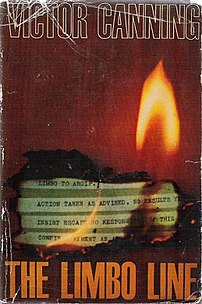
The Limbo Line is a 1963 spy thriller novel by the British writer Victor Canning. A former British secret service agent Richard Manston is called out of retirement to tackle a Soviet spy network kidnapping recent defectors to be taken back to Moscow.

















